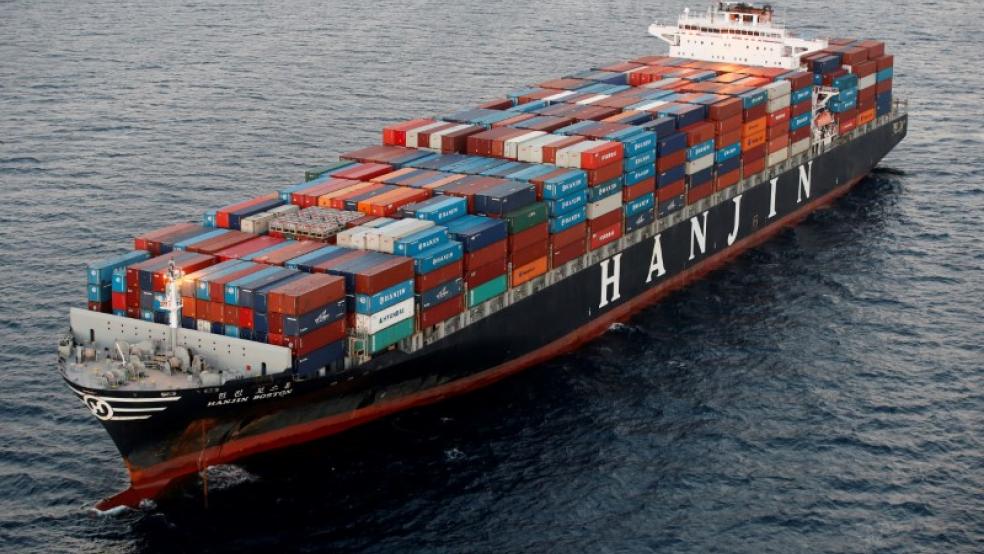President Trump recently announced his intention to nominate former U.S. Representative Scott Garrett (R-N.J.) to head the Export-Import (Ex-Im) Bank. Garrett is a fierce critic of the bank, noting in 2015 that it “rewards those with close relationships with Washington bureaucrats,” and “for the sake of the American taxpayer and the preservation of the free enterprise system, Congress should put the Export-Import Bank out of business.”
But if the past is prelude, Garrett will soon change his tune.
Special interests like Ex-Im are the perennial antiheroes of political theater. Like all useful villains, they are shadowy, menacing and never quite go away.
Related: Winners and Losers from Trump’s New Tax Plan
Office-seekers are right to blame special interests for many of our nation’s ills. When like-minded interests consolidate resources and power, they become quite good at obtaining privileges — subsidies, special tax breaks and regulatory protections — from Washington.
These favors end up costing the rest of us. They undermine competition, raise prices and depress the quality of the goods and services we rely on. They lock in inefficient technologies and outdated business models. They direct talent and resources toward politically favored activities and away from consumer-favored activities. Above all, they undermine the legitimacy of both government and the market.
But the funny thing is, the closer people get to special interest privilege, the less clearly they see it. Barack Obama saw it clearly enough when he was running for office. A few weeks before he was elected president, then-Senator Obama opined that the Export-Import Bank was “little more than a fund for corporate welfare.” He was right.
Related: Could Trump End Up Saving the Export-Import Bank?
Ex-Im’s sole purpose is to transfer wealth to special interests. Among other things, the taxpayer-backed agency guarantees loans to foreign companies that buy from U.S. manufacturers. The banks that make these loans offload their risk onto American taxpayers. Manufacturers — about 10 of whom benefit from the bulk of this largesse — increase their sales. In fact, a single firm, Boeing, accounts for 40 percent of Ex-Im’s assistance.
But, as with other special interest privileges, there are hidden costs. The Congressional Budget Office figures that Ex-Im costs U.S. taxpayers about $2 billion a decade. Borrowers who aren’t backed by the full faith and credit of the U.S. Treasury inevitably lose out on capital. And customers who buy from these manufacturers end up footing the bill for higher priced items. For example, the price of an airline ticket is higher than it would otherwise be if Ex-Im didn’t subsidize foreign demand for Boeing-made airplanes.
Senator Obama saw this, but President Obama hummed a different tune. Under the pressure of special interest pleading, he came to see Ex-Im as politically useful and became an enthusiastic booster for its reauthorization.
With all respect to Garrett, politicians in his situation — like Obama before him — almost always cave to this sort of pressure. Instead of putting the bank “out of business,” he is likely to call for “reform.” But how do you reform an agency whose very purpose is illegitimate? Direct bureaucrats to cut checks to special interests more efficiently?
Related: In Win for Boeing and GE, Trump Says He Wants to Revive Export Bank
Ex-Im is not controversial because of the way it operates. It’s controversial because its very mission — corporate welfare — is antithetical to both conservative and progressive notions of what government ought to do.
If Garrett would like to cast himself as the hero of this play, let me suggest a role model: the late economist Alfred Kahn. In Kahn’s day, the special interest villain was the Civil Aeronautics Board. The CAB regulated airline prices, routes and practices, and was widely seen by both progressives and conservatives as an agent of the airlines. By protecting the airlines from competition, it padded their profits at the expense of air travelers.
When Kahn was nominated to head the CAB in 1977, he might have had a change of heart much like President Obama’s. Instead, he did the unthinkable and dismantled his own agency. Now, the real price per mile of air travel is about half of what it was three decades ago, even as the price of jet fuel has gone up.
As The Atlantic’s Derek Thompson reports: “In 1974, it was illegal for an airline to charge less than $1,442 in inflation-adjusted dollars for a flight between New York City and Los Angeles. On Kayak, just now, I found one for $278.” In 1965, only 20 percent of Americans had ever flown. Now, most of us take at least one round-trip flight a year.
Sometimes, villains can be vanquished and the little guys can win.
Matthew Mitchell is a senior research fellow with the Mercatus Center at George Mason University and director of its Project for the Study of American Capitalism.





